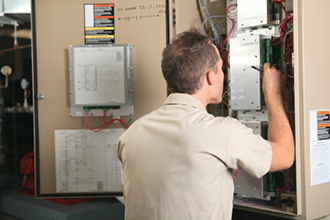Does Your Company Require A Service Department?
 Speaking broadly, there are two kinds of residential AV companies: There are the ones that have been in business for a decade or more, and there are the new companies, just started, most of whom fold in their first three years.
Speaking broadly, there are two kinds of residential AV companies: There are the ones that have been in business for a decade or more, and there are the new companies, just started, most of whom fold in their first three years.
With the latter group, eventually the company reaches the point where there are dozens, perhaps even hundreds of legacy systems installed in homes in your market.
If your company is in that situation, congratulations! The upside of being in that position is the number of potential upgrade projects available to you, either with the original client, or with new owners who’ve bought the house and want you to make some changes.
However, the downside is that the more installations you have around town, the greater the number of phone calls your likely to field from clients who need a service call of some sort.
Now, on the one hand, system remote monitoring has come a long way, and anything you’ve installed in the past couple of years is fairly easy to monitor and troubleshoot remotely, and less likely to require you to roll a truck to someone’s home. On the other hand, taking care of those service issues takes the time of someone on your staff, whether it’s a tech or a programmer, or even perhaps the boss himself. Time, as you know, is money.
If you look outside of the residential AV channel it’s worth noting that commercial channel integrators, both AV and security (not to mention the firms that do both) employ techs who only do service calls. Installers install, and service techs service.
So is there a lesson to be learned here? What are the pros and cons of maintaining dedicated service techs for residential AV integration?
The primary advantage is specialization: Having techs who only troubleshoot allows for greater efficiency. Projects that are underway don’t have to be sidelined to pull techs from an install to deal with a crisis at a finished installation. General Contractors and homeowners get upset when the installers don’t show up on a jobsite as originally scheduled.
This benefit cuts both ways, incidentally: If the troubleshooting guys hop on to a new project prior in the final stages and take care of the shakedown and troubleshooting of the system, that frees up the installers to move on to the next job.
One the downside, companies will often have two issues that make dedicated service techs a challenge to implement. The first is basic manpower: Most residential AV firms, even well-established ones like we’re talking about, are small businesses with a staff of anywhere from three to 12 people.
Assuming that the company is kept busy with new projects, it’s tough to dedicate one or more technicians to the service role.
Second, good troubleshooters are hard to find.
It’s safe to say that almost every technician in AV has been trained as an installer, and not as a service tech, which is a completely different job description, and skill set, not to mention mental outlooks.
If as a manager you find a tech who’s a wizard at both, hire that person. Now!
It’s also worth mentioning that a big part of the reason why commercial integrators maintain a service staff is because it’s commonplace for them to have Recurring Monthly Revenue coming their way through service contracts that pay the salaries of their service team.
Without RMR, a service team is an expense, and doesn’t contribute directly to a company’s top line revenue.
Now, you can argue that service techs contribute indirectly to increasing revenue by improving the company’s efficiency by letting the installers focus on installing, but your accountant may not buy that.
Regardless, if you have the manpower to implement a service tech or two, and the challenges be overcome, it might prove to be a profitable decision.





